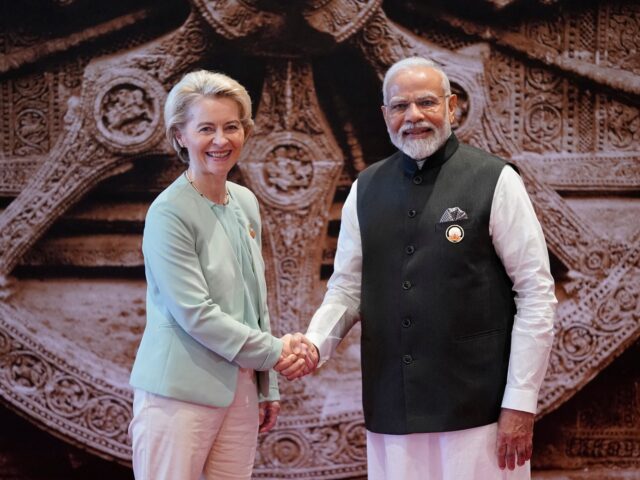(AFP) — Europe, the Middle East and India will on Saturday unveil plans to create a modern-day Spice Route, boosting trade ties with potentially wide-ranging geopolitical implications.
The United States, Saudi Arabia, the European Union, the United Arab Emirates and others will launch plans to link data, railway, ports, electricity networks and hydrogen pipelines across the three regions when they meet on the sidelines of the Group of 20 summit in New Delhi.
Although heavily trade-focused, the plan could spur major political changes.
Signatories hope it can help integrate India’s vast market of 1.4 billion people with countries to the west, offer a counterbalance to lavish Chinese infrastructure spending, boost Middle Eastern economies and help normalise relations between Israel and Arab Gulf states.
The India-Middle East-Europe economic corridor is “nothing less than historic”, EU leaders are expected to say when the details of the plans are announced.
One proposed project would link railway and port facilities across the Middle East — including the United Arab Emirates, Saudi Arabia, Jordan and Israel — potentially speeding trade between India and Europe by up to 40 percent.
Pramit Pal Chaudhuri, South Asia practice head at the Eurasia Group, said that a shipping container which today travels from Mumbai, through the Suez Canal to Europe could in the future go by rail from Dubai to Haifa in Israel — saving both money and time — and on to Europe.
At present the Suez Canal is a major bottleneck to world trade, handling roughly 10 percent of global maritime trade but often beset by disruptions.
In March 2021, the giant container ship Ever Given caused a nearly week-long stoppage in Suez traffic after it became lodged diagonally in the waterway.
At the same time the plan neatly aligns with several of Washington’s goals in the Middle East, and officials say the United States is keen to see the projects take flight.
The initiative “has enormous potential”, according to Jon Finer, US deputy national security advisor.
The Italian government of Giorgia Meloni is reportedly preparing to leave Communist China’s Belt and Road global domination scheme this year. https://t.co/nauAUleD68
— Breitbart News (@BreitbartNews) May 12, 2023
President Joe Biden’s administration is actively prodding Riyadh — a major oil producer and security partner — to normalise ties with Israel after decades of conflict and closed borders.
US involvement could also help mend deeply damaged ties between Riyadh and Washington, which frayed after the US-Iran nuclear deal and the 2018 murder of dissident journalist Jamal Khashoggi.
Finer said the public announcement would come after “months of careful diplomacy, quiet, careful diplomacy, bilaterally and in multilateral settings”.
According to details seen by AFP, the India – Middle East – Europe economic corridor would develop infrastructure to enable the production and transport of “green hydrogen”.
It would also strengthen telecommunications and data transfers through a new undersea cable connecting the region.
All the projects could also help oil-soaked Middle Eastern states ween their economies off dependence on fossil fuels.
Michael Kugelman, South Asia Institute director at The Wilson Center, said the plan could be a significant response to China’s much-vaunted Belt and Road Initiative.
The so-called BRI has spread Chinese influence, investments and commerce across Europe, Africa, Asia and Latin America.
“If finalised, it would be a game changer that strengthens connectivity between India and the Middle East and would aim to counter BRI,” Kugelman posted on X, formerly known as Twitter.

COMMENTS
Please let us know if you're having issues with commenting.